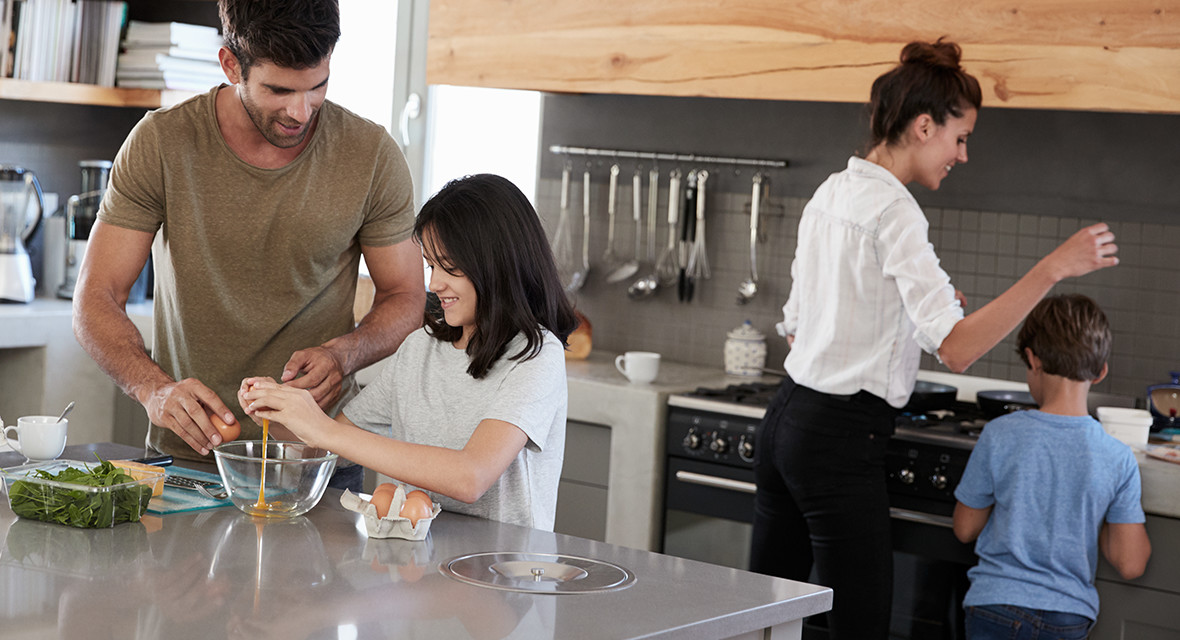
A successful back to school
The summer is coming to an end, and soon the entire family will return to their routines. It’s not always simple, especially when you have kids! Nevertheless, a few tricks can help you get organized so that kids and adults can comfortably transition back to school and work.
When you return to work and homework routines, getting enough sleep, planning meals and doing chores become a challenge. Discover how to make the transition more pleasant for everyone!
Returning to a sleep routine
The children get up at ten in the morning, go to sleep at ten at night, nap in the afternoon - during the summer, that is. Summer vacation means guilt-free lazing about, so it can be painful to have to set yourself back on clock time. Here are a few pointers to help out.
It’s often said that it takes twenty-one days for the brain to take on a new habit, but that’s in an ideal world. Try to start the evening routine as soon as you can, so that you can get kids’ brains to partway there by the time they go back to school. Get them excited about the upcoming school year and emphasize that they’ll need to be in shape to enjoy everything and thrive through the school year. Present the new evening routine as a “rehearsal before school starts up again.”
Get there progressively: if your child has gotten used to going to bed at 10:00 pm every night, start by bringing them to bed around 9:00 pm, then 8:00 pm, until this becomes the usual time. Never use bed-time as punishment, however. Explain instead to your child that it’s important to get enough sleep because basically sleeping is growing!
Sleep times vary from one child to another, but they say an eleven to fourteen hour sleep is necessary for one to two year olds, ten to eleven hours for three to five year olds, nine to eleven hours for the six to thirteen year olds and between eight and ten for teens.
Planning the meals: easing back into prep routines
Lunch at two in the afternoon, ice cream every evening, breakfasts in front of the TV or out on the patio - and no idea what to make for supper. The summer vacation and flexible schedules were great for all the family, but did you know that planning meals can also be a source of serenity? Knowing what you will eat all week is quite fun, and all you need is a bit of organization. On Sunday, take the time of choose ten tempting recipes, make your shopping list and hit the grocery store. Make the afternoon all about cooking and get your little ones to help! Children can wash veggies, measure ingredients, and mix, for example.
What do you get out of better organizing meals? More time in the evening, delicious lunches and happy kids – and great savings!
Bonus: Based on the same principle, it’s possible to plan clothing for the family for the week. Take a moment to check the weather from Monday to Friday and have fun as a family assembling five outfits to go with it. Mornings will be a lot simpler!
The chore list: responsible routines
Do you have a chore table in the kitchen? Recommended by educators and many parents, this type of table helps teach responsibility to children - while also helping you keep up the house.
Putting away their toys or their clothes, setting the table, cleaning up spills or serving the desserts are little chores that help kids develop their coordination and their sense of initiative, while learning the pleasure of helping one another out.
You can make a table in which every day, each kid has a few little chores to do, and if they accomplish them, it gets noted in the table. At the end of the week, if the chores have been done, you can offer a little reward for their help: take them to the library to sign out some books, let them play a bit longer with their friends or choose their clothing themselves, and so on. To set up this system for back to school, let your children know they’re big kids now.
Starting out work and school in the fall is the right time to introduce and install good habits and facilitate the life of the entire house. Don’t hesitate to test our tips and adapt them to your own family life.












